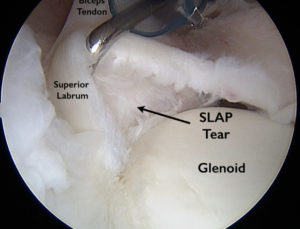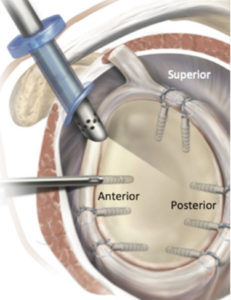CORE Physical Therapy In Omaha Explains…
By Dr. Mark Rathjen PT DPT CSCS
CORE Physical Therapy Co-owner
17660 Wright St. 9/10
Omaha NE
402-933-4027
DO you NEED Shoulder surgery ?
CORE Omaha Explains…
The below study concludes ” Neither labral repair nor biceps tenodesis had any significant clinical benefit over sham surgery for patients with SLAP II lesions in the population studied.”
So it would seem if you have a type 2 slap lesion (a type of labral tear) you may not actually need or benefit from surgery at all. (mean age 40 years, 118 study participants) Outcomes were measure at 2 intervals of 6 and 24 months post op.
What does this all mean?
Well, it means that you need to make darn sure you need a surgery on your shoulder before you have it. As the studies show, outcomes don’t always change from rehab to surgery. You may not want the cost and recovery time need for a 6-9 month repair of post op recovery. This study does NOT mean all surgery for the labral tears are not necessary, it means in certain situations, you may not need it. MRI diagnostics and multiple opinions.
How do I know what to do?
Visit a reputable surgeon, do your home work. Work with a good sports physical therapist and determine if more conservative rehab can be more effective than a surgical intervention. If all else fails, you may do wonderful with a labral repair, just make sure you need one if you get one…
CORE Omaha Physical Therapy has worked with dozens of shoulder patients with labral tears and we avoided surgery with conservative rehab and stability training. COME see the CORE difference.
At CORE Physical Therapy in Omaha, We specialize in the treatment of athletes. We have worked with athletes for a combined 30 years. CORE was established in 2015 by Dr. Mark and Dr. Claire Rathjen is family owned and operated.
We are proud to serve the greater Omaha metro area.
For More information, Please feel free to contact us http://coreomaha.com/contact/
Please feel free to follow us at https://www.facebook.com/COREomaha/
To get started http://coreomaha.com/getting-started/
For more Blog information http://coreomaha.com/blog/
Youtube Account linked below.
https://www.youtube.com/channel/UCVg8OSN5h-i1n_ykw1Gvahg?view_as=subscriber
Sham surgery versus labral repair or biceps tenodesis for type II SLAP lesions of the shoulder: a three-armed randomised clinical trial
- PMID: 28495804
- PMCID: PMC5754846
- DOI: 10.1136/bjsports-2016-097098
Free PMC article
Abstract
Background: Labral repair and biceps tenodesis are routine operations for superior labrum anterior posterior (SLAP) lesion of the shoulder, but evidence of their efficacy is lacking. We evaluated the effect of labral repair, biceps tenodesis and sham surgery on SLAP lesions.
Methods: A double-blind, sham-controlled trial was conducted with 118 surgical candidates (mean age 40 years), with patient history, clinical symptoms and MRI arthrography indicating an isolated type II SLAP lesion. Patients were randomly assigned to either labral repair (n=40), biceps tenodesis (n=39) or sham surgery (n=39) if arthroscopy revealed an isolated SLAP II lesion. Primary outcomes at 6 and 24 months were clinical Rowe score ranging from 0 to 100 (best possible) and Western Ontario Shoulder Instability Index (WOSI) ranging from 0 (best possible) to 2100. Secondary outcomes were Oxford Instability Shoulder Score, change in main symptoms, EuroQol (EQ-5D and EQ-VAS), patient satisfaction and complications.
Results: There were no significant between-group differences at any follow-up in any outcome. Between-group differences in Rowe scores at 2 years were: biceps tenodesis versus labral repair: 1.0 (95% CI -5.4 to 7.4), p=0.76; biceps tenodesis versus sham surgery: 1.6 (95% CI -5.0 to 8.1), p=0.64; and labral repair versus sham surgery: 0.6 (95% CI -5.9 to 7.0), p=0.86. Similar results-no differences between groups-were found for WOSI scores. Postoperative stiffness occurred in five patients after labral repair and in four patients after tenodesis.
Conclusion: Neither labral repair nor biceps tenodesis had any significant clinical benefit over sham surgery for patients with SLAP II lesions in the population studied.
Trial registration number: ClinicalTrials.gov identifier: NCT00586742.
Keywords: Randomised trial; SLAP lesions; biceps tenodesis; labral repair; sham surgery.


